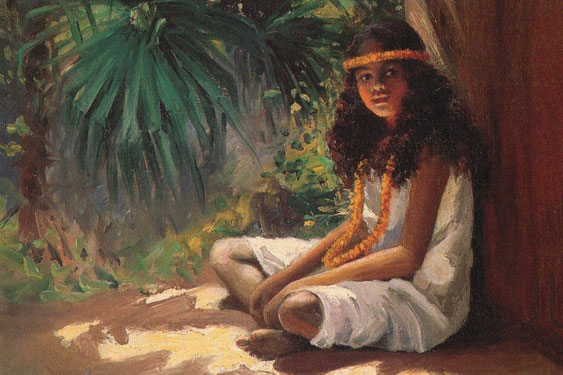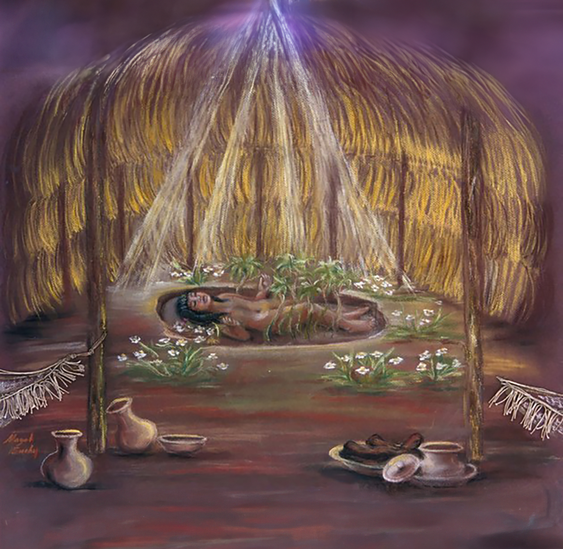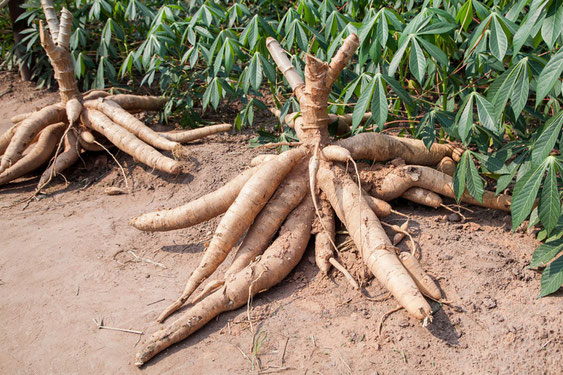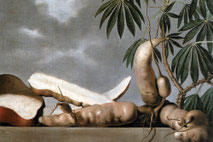The story of ManDi
The legend of the Tupi Indians about the birth of the cassava root

Written by Márcia Fernandes, Prof. in Literature
Edited by Peter Rieser / oxente.ch
The indigenous legend about the discovery of the cassava root (mandioca) is an example of a story told by the Tupi Indians in Brazil. It describes the origin of this root, which became one of the main foods of the Brazilian natives. Cassava, also called mandioca, maniok, yuca or aipim in other countries and regions, can now be found on every table in the north and northeast of Brazil. In Europe, the healthy tropical tuber is considered a superfood.
The beautiful daughter of a chief of an Indian tribe in the Amazon was pregnant...
... when her father found out about this, he was very sad because his greatest wish, to see his only daughter as the wife of a strong and admired warrior of his tribe, was no longer to be
fulfilled.
Instead, she had given preference to a stranger - and although she swore in the name of all the gods that she had never been with a man, no one could ignore her swollen belly.
In a dream, a white man appeared to the chief and explained to him that there was no reason to be sad because his daughter was telling the truth, that no man had impregnated her, but that the
fruit of her womb was from the gods. The father was relieved, regained his zest for life and treated his daughter with affection again.
The Short Life of ManDi
After a few months, the young woman gave birth to a little girl. She had white, very sensitive skin and named her Mandi. The light-skinned child proved to be
intelligent and always cheerful. She soon became the darling of the entire tribe.
But the unexpected family happiness was short-lived. One sunny morning, the horrified mother found her beloved girl lifeless in her hammock. The medicine man was called, but he too could no
longer help - Mandi had died.
Amid tears and lamentations from all the tribe members, Mandi's little body was buried inside the maloca, right next to her mother's hammock; she had decreed this. Every day, the young mother's
longing tears wet the small burial mound. One morning, she noticed the delicate tips of a plant stretching out of the earth like small green fingers. Under their careful care, the green shoots
quickly developed into a stately plant, but no one in the village knew its name or use – even the wise medicine man had never seen a similar plant.
The name Mandioca, "ManDi's House" originated
One day, the earth above the roots of the plant cracked. Mandi's mother immediately imagined that her beloved little daughter might want to return to life and, in desperate hope, began to dig with her bare hands.
Instead of her child, she found brown roots as thick as her arm. Mandi's mother called the medicine man, who was the first to carefully taste the milky-white root flesh, after which the whole village community wanted to eat
it. And because they liked it, they planted a few shoots of the unknown plant in the ground around their village, which all grew
splendidly and gave the people many thick, tasty roots. They called the plant, which became the main food of all forest Indians,
Mandioca - "Mandi's house".
In Brazil, cassava is now called mandioca, which is derived from the name of the woman Mandi-Oca (or mãdi'og) - according to a legend of the Brazilian indigenous people, the cassava plant is said to have sprung from her body. Common names for these plant species are maniok, mandioca, cassava or, in Latin America, yuca.








